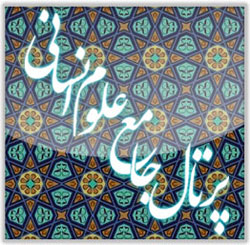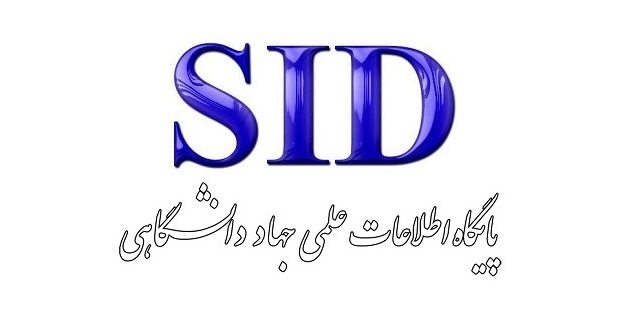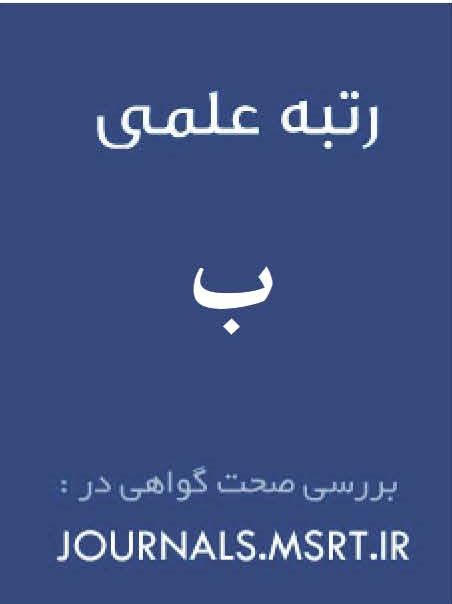Ethical Principles
The Treasury of Persian Language and Literature is committed to upholding the highest standards of ethics and integrity in publishing. In line with the guidelines provided by the Committee on Publication Ethics (COPE), this page details our policies on publication ethics to ensure that every submission, review, and publication follows internationally recognized standards for research integrity. All authors, editors, and reviewers engaged with our journal are expected to adhere to these ethical standards to maintain trust, accountability, and transparency within the academic community.
1. Ethical Responsibilities of Authors
Originality and Plagiarism
Authors submitting manuscripts to the Treasury of Persian Language and Literature must ensure that their work is original and free from plagiarism. Manuscripts found to contain text, ideas, data, or figures copied from other sources without proper attribution will be rejected, and cases of plagiarism will be reported to the author’s affiliated institution. Authors must cite and reference all sources accurately.
Data Integrity and Fabrication
Authors are required to present their data honestly and transparently. Any data fabrication, falsification, or manipulation is strictly prohibited. Authors must retain their raw data for a reasonable period after publication in case further verification is needed. Should any errors be found after publication, authors are expected to provide corrections promptly.
Avoidance of Redundant Publication and Self-Plagiarism
The Treasury of Persian Language and Literature does not permit redundant publication, where an author reuses their previously published work in new submissions without appropriate citation or disclosure. Authors must inform the editorial team if parts of their manuscript have appeared in previous publications to avoid overlap.
Authorship and Contributions
Only those who made significant contributions to the research and manuscript preparation should be listed as authors. Authors must agree upon the sequence of authorship, and any changes to the author list (additions, removals, or changes in order) after submission require the approval of all co-authors. In cases of disputes, the editor may mediate following COPE guidelines.
Conflict of Interest and Financial Disclosures
Authors must disclose any financial or personal relationships that might influence or appear to influence the research and its findings. This includes funding sources, institutional support, or any direct or indirect financial interests that could be viewed as potential conflicts of interest. The journal maintains transparency by publishing relevant disclosures alongside the article.
2. Ethical Responsibilities of Editors
Editorial Independence and Integrity
Editors are expected to make decisions solely based on academic merit, originality, clarity, and relevance to the journal's scope. Personal biases, conflicts of interest, or external influences should never interfere with editorial decisions. The journal supports editors’ independence to make fair and unbiased decisions.
Confidentiality
All submitted manuscripts are treated as confidential documents. Editors, editorial staff, and reviewers must not disclose any information about a submitted manuscript to anyone other than the corresponding author, reviewers, and the publisher, as necessary. Confidentiality is respected throughout the review process, and authors’ personal information is protected in line with data privacy regulations.
Conflict of Interest
Editors are required to recuse themselves from handling manuscripts if they have any conflicts of interest. In such cases, another member of the editorial board will assume responsibility for handling the manuscript impartially. Editors must also refrain from using unpublished information in submitted manuscripts for their research.
Timeliness and Communication
Editors are responsible for ensuring that the review and publication process is efficient and respectful of authors’ time. They should communicate clearly and promptly with authors, keeping them informed of the status of their submissions and expected timelines for decisions.
Handling Ethical Misconduct
If any ethical misconduct or breach of research integrity is reported or suspected, editors are responsible for investigating the matter thoroughly. In cases where misconduct is confirmed, editors will follow the guidelines set by COPE, which may include retraction of published work, notification to the author's institution, or other corrective actions.
3. Ethical Responsibilities of Reviewers
Objectivity and Impartiality
Reviewers play a critical role in ensuring the quality and integrity of the peer-review process. They are expected to evaluate manuscripts objectively, fairly, and without any personal or professional biases. Criticism should be constructive, supported by relevant evidence, and free from hostility. Personal comments or disparaging remarks are strictly prohibited.
Confidentiality
Reviewers must maintain the confidentiality of all information and content in the manuscripts they are asked to review. Manuscripts should not be shared, discussed, or referenced without permission from the editor. Reviewers are also prohibited from using unpublished data or information from submitted manuscripts for their personal research or benefit.
Conflict of Interest
Reviewers must recuse themselves from reviewing manuscripts if they have any financial, professional, or personal relationships that could influence their objectivity. Reviewers are encouraged to inform the editor if they feel unable to conduct an unbiased review so an alternate reviewer can be assigned.
Timeliness
Reviewers should accept review assignments only if they can complete the task within the agreed-upon timeframe. If a reviewer requires additional time or cannot fulfill the commitment, they should notify the editor immediately, allowing for timely reassignment.
Contribution to Quality
Reviewers are encouraged to provide constructive feedback to help authors improve their manuscripts. They are instrumental in ensuring the integrity, quality, and academic rigor of the articles published in Treasury of Persian Language and Literature, and their expertise adds considerable value to the editorial process.
4. Handling Allegations of Ethical Misconduct
The Treasury of Persian Language and Literature takes allegations of research misconduct seriously. Our journal adheres to the COPE flowcharts in investigating and resolving cases of potential misconduct, such as plagiarism, data fabrication, unethical research practices, and authorship disputes. We recognize that each case may differ, and therefore, investigations are conducted carefully, respecting the rights of all parties involved.
Process of Investigation
- Initial Assessment: Upon receiving an allegation, the editor will conduct a preliminary assessment to determine if the claim is substantiated and warrants further investigation.
- Gathering Evidence: If further inquiry is needed, the editor will gather necessary evidence, which may include raw data, author responses, and statements from relevant parties.
- Resolution: If misconduct is confirmed, corrective actions may include retraction of the article, notification to the author's affiliated institution, or prohibition from future submission. Authors have the right to respond to allegations and are kept informed throughout the investigation.
Corrections and Retractions
In the event of published errors, inaccuracies, or proven misconduct, the journal will issue retractions or corrections as necessary. Retractions are published to correct the academic record, protect the integrity of the literature, and alert readers to any compromised data or findings. Corrections are published to amend honest errors that do not affect the overall validity of the research.
5. Research Involving Human and Animal Subjects
Authors conducting research involving human participants or animals must adhere to ethical guidelines and obtain necessary approvals from relevant ethics committees or institutional review boards. A statement confirming adherence to ethical standards and detailing informed consent procedures (for human studies) or humane treatment practices (for animal studies) must be included in the manuscript.
Informed Consent
In studies involving human participants, authors must ensure that informed consent has been obtained and that all participants’ rights and privacy have been protected. Identifiable information should only be published if essential and with the participant's explicit consent.
Compliance with Ethical Standards
The Treasury of Persian Language and Literature supports ethical research practices and requires authors to confirm compliance with ethical standards in their research involving human or animal subjects. Studies that fail to provide evidence of ethical approvals or compliance may be rejected.
6. Corrections, Retractions, and Editorial Expressions of Concern
The journal is committed to maintaining an accurate academic record and will publish corrections, retractions, or editorial expressions of concern where necessary. Corrections are issued for honest errors that do not undermine the study's findings, while retractions are issued in cases of serious ethical breaches, such as data fabrication or falsification. Editorial expressions of concern may be published in cases where an investigation is pending.
Transparency Statement on the Use of Artificial Intelligence
In light of the growing use of artificial intelligence (AI) tools in academic writing, translation, data analysis, and editorial processes, our journal is committed to ensuring full transparency and ethical responsibility in the use of such technologies throughout the submission, peer review, and publication processes.
To uphold the highest standards of academic integrity and align with the recommendations of the World Association of Medical Editors (WAME), our journal has adopted the following principles regarding the use of AI:
-
Transparent and Responsible Use: Authors are required to clearly disclose any use of AI tools—such as ChatGPT, Grammarly, DeepL, or others—at any stage of manuscript preparation (e.g., literature review, results description, discussion writing, language editing, or translation). This disclosure should appear in the acknowledgments section or a footnote on the title page.
-
AI Tools Cannot Be Authors: According to the WAME guidelines, AI tools cannot be credited as authors of scientific manuscripts. These tools do not meet authorship criteria because they lack legal responsibility and the ability to consent to publication or accountability for the content.
-
Human Oversight and Validation: All AI-generated content must be critically reviewed, edited, and validated by human authors. The final responsibility for the accuracy, coherence, and integrity of the manuscript lies solely with the human contributors.
-
Use in Peer Review: Peer reviewers using AI tools to assist with manuscript evaluation must ensure they do not share confidential information with such tools. Any AI use during review must comply with confidentiality and data protection standards.
-
Misuse and Ethical Violations: The inappropriate use of AI—such as generating fabricated content, falsifying data, or committing plagiarism—will be treated as a serious ethical violation and subject to disciplinary action in accordance with publication ethics.
-
Policy Review and Updates: This policy will be reviewed regularly in response to evolving AI technologies and ethical considerations. Any updates will be published on the journal’s official website.
Our journal is committed to transparency, integrity, and accountability in scientific publishing. We fully adhere to the WAME statement entitled “Recommendations on Chatbots and Generative Artificial Intelligence in Relation to Scholarly Publications.”
For the complete text of WAME’s recommendations, please visit:
https://wame.org/page3.php?id=106








